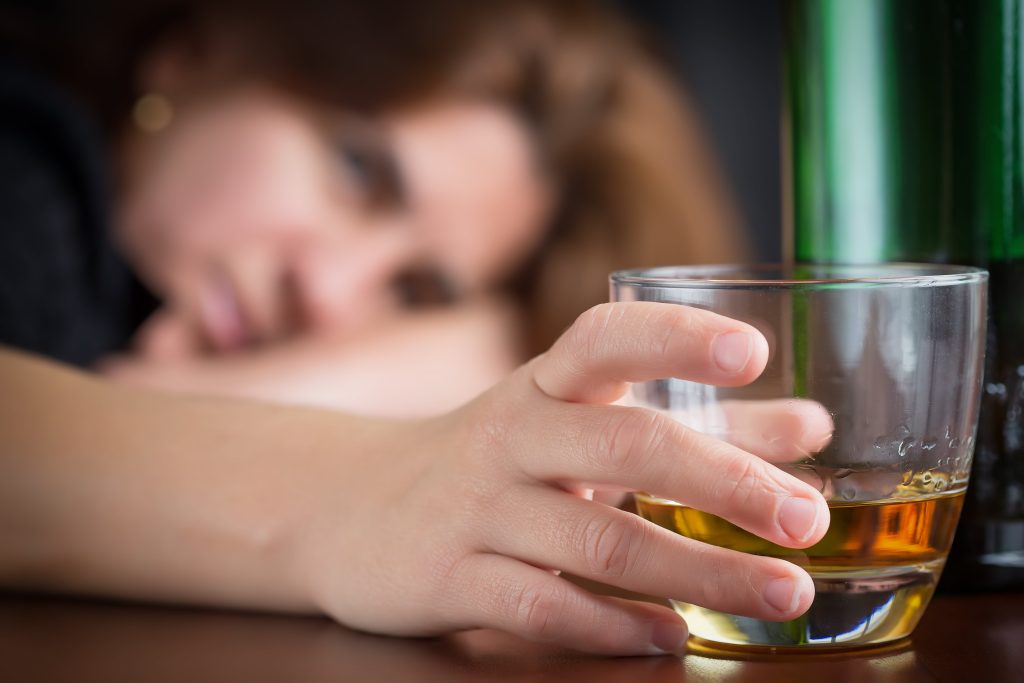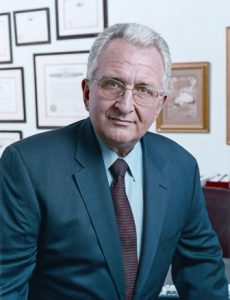Oklahoma Bar Journal
Lawyers have a unique place in American society. Some say they are like dogs: Everyone loves their own but hates all the other ones. We are the punch line to many jokes. We are also the ones who get the 2 a.m. calls, the terrible news, the unsolvable problems with the fervent prayers that we can make everything better, make all the bad stuff go away, turn chicken scratch into chicken salad.
It is heady stuff being the hero, the protector, the powerful avenger, but of course, we cannot always fix the problem, win the case and make it all better. So, when we fall short, or even when we don’t, there is a heavy price to pay for trying to take on that role.
‘THE PREVALENCE OF SUBSTANCE USE AND OTHER HEALTH CONCERNS AMONG AMERICAN ATTORNEYS’
The ABA undertook a study of issues affecting attorney well-being and published a report in 2020. The study relied in part upon studies undertaken in the medical profession, such as published studies in the Journal of Addiction Medicine. Unsurprisingly, attorneys are addicted to alcohol and drugs at a substantially higher rate than the general population. Among the lawyers surveyed, 21% qualified as “problem drinkers,” more than three times the 6% rate of alcohol addiction in the general population and almost double the 12% addiction rate of other highly educated professionals.1

Kmiragaya | #60174525 | stock.adobe.com
These statistics should be shocking. They should be a call to action. They should alarm every member of the bar to the point of making serious efforts to change our lifestyles and to reach out to our fellow members of the bar to help them, for their sakes and the sake of their clients.
The term “problem drinkers” is more than a general descriptor. A “problem drinker” is determined from the application of the Alcohol Use Disorders Identification Test (AUDIT), a 10-item self-report instrument developed by the World Health Organization (WHO) to screen for hazardous use, harmful use and the potential for alcohol dependence. A score higher than eight indicates hazardous or harmful alcohol intake and also possible dependence. “Problematic use” and “problem drinker” was used in the AUDIT study to capture all the levels of alcohol use characterized by the study as hazardous, zone II, harmful, zone III and alcohol use warranting full diagnostic evaluation for alcohol use disorder zone IV.2
Twenty-eight percent of the lawyers surveyed struggled with depression, 19% had symptoms of anxiety and 11.5% had suicidal thoughts. The statistics show that 25 to 30% of all lawyers facing disciplinary action before the bar suffer from either an addiction or some form of mental illness.3 To those who work in attorney disciplinary matters, that last statistic may seem a bit low.
These statistics should be shocking. They should be a call to action. They should alarm every member of the bar to the point of making serious efforts to change our lifestyles and to reach out to our fellow members of the bar to help them, for their sakes and the sake of their clients. Unfortunately, that is not the common reaction of most of us to these statistics.
APPROACHING THE PROBLEM AS AN ILLNESS
In order to deal effectively with attorney addiction issues, it is vital to approach the problem as an illness and to realize that lawyers with addiction issues will not readily recognize those problems in themselves or admit to needing help. Despite the general belief that interventions are effective tools for getting an addicted person help, the truth is that the only thing an intervention generally does is annoy the person being ambushed and harden their resolve to resist getting help. Until the lawyer recognizes the need for help and is willing to accept help, any effort to force that help on the lawyer is doomed to failure. To be clear, it is not only addicted lawyers who need help; lawyers suffering from depression, economic stress, overwork or any other problem that puts their mental health at risk need help, too.
My experience in talking with friends who I know have been suffering from addiction problems is the same as anyone who has a family member with similar issues. No one can make another person get help for a psychological or substance abuse issue if that person is not ready to go. I have shown up in lawyers’ offices to talk to them after getting reports from various sources, including judges and opposing counsel. I have been met with denials that there is a problem, promises to ratchet back on consumption and subsequent reports of ringing success in only drinking a little bit. Then, of course, I get the same kind of reports that the lawyer is still showing up in court smelling like a distillery. This initial response of denial is not unique to lawyers – it is the typical response of any individual struggling with addiction or mental health issues. However, lawyers often have personalities that make this situation even harder.
Many lawyers suffer from an inflated ego, making them believe they are supermen and women, immune to the weaknesses of mere laypeople and that they do not need help from anyone. Couple this attitude with a genuine fear that seeking help from a mental health professional or the Lawyers Helping Lawyers Assistance Program (LHL) is not only a humiliating admission of weakness but, worse yet, a guarantee of gimlet-eyed scrutiny from the Office of the General Counsel.
Neither of these things is true. In fact, the Office of the General Counsel is prohibited from knowing anything about even the identity of attendees of LHL meetings, aside from the attendance of attorneys whom it refers there for help.4
The bar funds LHL and will pay for as many as six professional counseling sessions. Part of the funding for LHL includes the attendance and participation at the monthly meetings of a licensed professional counselor (LPC). The LPC is available for counseling as well. This counseling is also paid for through the Lawyers Helping Lawyers Foundation, which is an OBA committee but is independent and the sole determiner of the funding for counseling it provides attorneys. Almost no one avails themselves of these remarkable services. In Oklahoma, there are two LHL meetings a month, one in Oklahoma City and the other in Tulsa.5 Scott Goode and I, who host these meetings in Tulsa and Oklahoma City, can attest to the fact that only 5 to 16 people attend each of these meetings each month. What is the reason so few people are in attendance every month? Surely the lawyers of Oklahoma in need of help are more numerous than that.
ENGAGING WITH AT-RISK LAWYERS
So, what is the answer? One answer is to just give up. If we cannot make lawyers get the help they need, we do nothing and simply hope for the best for them. The bar has a vital job to do in policing the attorneys who are charged with the responsibility of representing the public. As a society, we must protect the public from lawyers who have demonstrated a lack of honesty or integrity and who go so far over the line as to pose a threat to the public. Removing predatory or dangerous lawyers from the practice is a laudable goal. On the other hand, lawyers who only harm themselves and manage to avoid harming their clients can complete their careers without ever having to address their addictions. However, despite how important protection of the clients is – and it is of the foremost importance – our focus needs to be on saving the lives and the quality of life of our fellow lawyers. To do this, we must be actively engaged with lawyers who we know are at risk.
The answer that will actually make a difference is lawyers as a group abandoning the course of action, or rather, non-action, that has been the traditional hallmark of our profession. To borrow a phrase from Homeland Security, “If you see something, say something.” There are many avenues available to a lawyer who sees a colleague or an adversary who appears to need help. The first, most obvious one is to address the issue with the lawyer directly. Irrespective of what the issue is, saying something to the affected lawyer, expressing concern and a desire to help may make the difference in that lawyer’s life by forcing them to acknowledge they need to start talking to you or someone who can help. Reaching out to a fellow human being in need is not being a superhero or a savior, it is being a decent person. Another avenue is normalizing the use of the resources that are already available through LHL and removing the stigma associated with it.
When Bill W., the founder of Alcoholics Anonymous, started the organization, he did not seek out someone to save – he sought out someone to talk to him, someone who understood the pressures and thoughts he was dealing with. The person he found was like him, and the two of them saved each other just by being present and listening to what the other one had to say.6
Our group, LHL, tries to do the same thing for the issues lawyers have. We listen to each other’s stories, complaints and successes without judgment and add our experiences. The people who attend believe the experience of talking to other lawyers about the stresses of the practice and the common pitfalls we face helps them transition to a healthier way of approaching the practice. The only value LHL has is that it is a means of facilitating human contact with someone who cares and who has a similar frame of reference. One-on-one contact can yield similar results if someone cares enough to say something to someone to try to save the quality of their life.
So, the only response we can have to this issue as caring human beings is to respond to the question “Am I my brother’s keeper?” with a resounding “Yes!” We must leave our comfort zones and care enough about our fellow lawyers to risk offending them by pushing our noses into their business to offer our help while withholding our judgment. Take a colleague to lunch and tell them about your problems, ask for their help and invite them to share their problems with you. Offer to attend an LHL meeting with them. In the end, they may save
you as much as you save them.
ABOUT THE AUTHOR

Tom M. Cummings is a solo practitioner in Oklahoma City. He chairs the Lawyers Helping Lawyers monthly discussion groups for western Oklahoma and is a strong advocate for that program. He earned bachelor’s degrees in history and political science at Williams College in 1975 and a J.D. from the OU College of Law in 1978.
- “The Prevalence of Substance Use and Other Health Concerns Among American Attorneys,” Journal of Addiction Medicine, January-February 2016.
- Barbor TF, Higgins-Biddle JC, Saunders JB, Monteiro MG. The alcohol use disorders identification test; guidelines for use in primary care [WHO web site]. Available at https://bit.ly/3CnUAa1.
- ABA Profile of the Legal Profession 2020, p. 99.
- Oklahoma Rules of Professional Conduct, Rule 8.3(d), Okla. Stat. tit. 5A, §8.3(d).
- In Oklahoma City, LHL meetings are held on the first Thursday of each month at 6 p.m. in Tom Cummings’ law office at 701 NW 13th St., Oklahoma City, OK 73103; in Tulsa, the LHL meetings are held on the second Thursday of each month at 6 p.m. in Scott B. Goode’s law office at 1437 S. Boulder Ave., Ste. 1200, Tulsa, OK 74119.
- The Alcoholics Anonymous Big Book, p. 158.
Oklahoma Bar Journal – OBJ 93 Vol 4 (April 2022)

